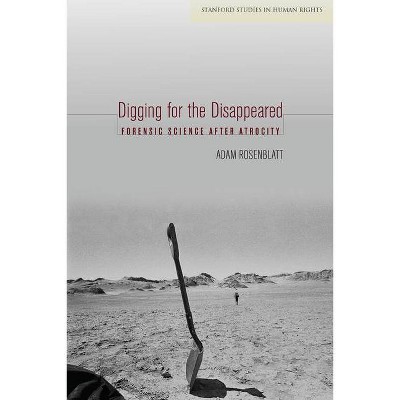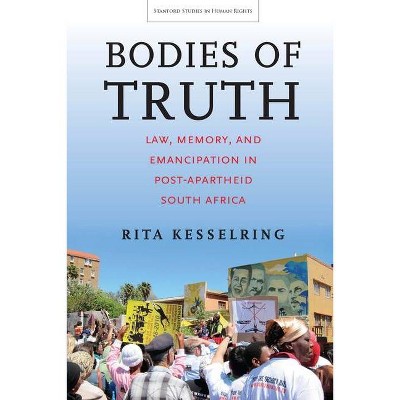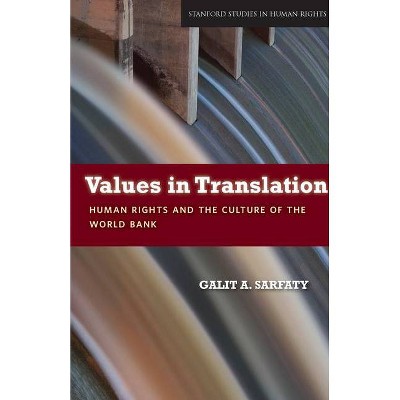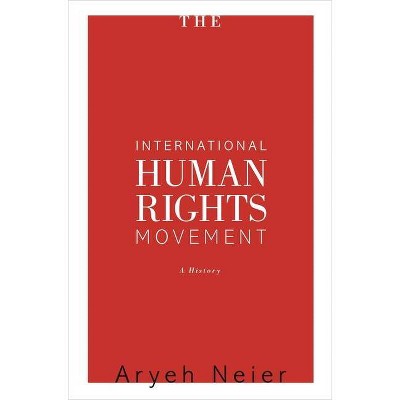The Rise and Fall of Human Rights - (Stanford Studies in Human Rights) by Lori Allen (Paperback)
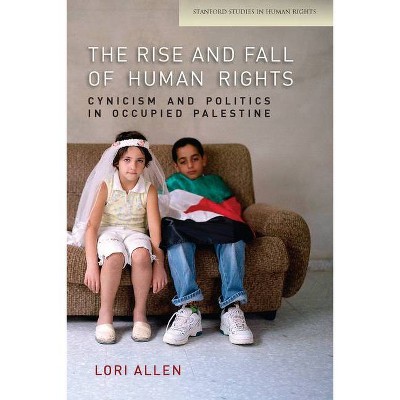
Similar Products
Products of same category from the store
AllProduct info
<p/><br></br><p><b> About the Book </b></p></br></br>Explores the dialectic of cynicism and hope and the role of human rights in the production of rule in the occupied Palestinian territories.<p/><br></br><p><b> Book Synopsis </b></p></br></br>Explores the dialectic of cynicism and hope and the role of human rights in the production of rule in the occupied Palestinian territories.<p/><br></br><p><b> Review Quotes </b></p></br></br><br>A significant contribution to our understanding of Palestinian politics and the global human rights movement. The Israeli-Palestinian conflict has been analyzed over and over again, but Lori Allen finds a genuinely new angle. This book achieves a rare balance of shedding light on recent events in the Middle East while producing thought-provoking arguments for understanding the potentials and limitations of human rights claims in situations of prolonged armed conflict.--Tobias Kelly "University of Edinburgh"<br><br>Allen makes incisive comments on the comparative nature of sovereignty and popular discontent in countries ranging from India to Turkey to Chile . . . [This book] presents varied Palestinian perspectives on human rights within the framework of scholarship on the state and sovereignty, an approach rarely considered by historians. Aimed at anthropologists, this study can serve as a valuable addition to advanced undergraduate and graduate courses in Middle East history.--Charles D. Smith<br><br>In her exceptional book, <i>The Rise and Fall of Human Rights: Cynicism and Politics in Occupied Palestine</i>, anthropologist Lori Allen explores a complex set of interlocking themes about the role of human rights in the Palestinian nationalist agenda, viewed through the prism of cynicism . . . This book is a must read--with relevance far wider than the case of Palestine.--Deena R. Hurwitz "<i>Middle East Journal</i>"<br><br>In this significant book, Lori Allen tackles the rise of professionalized advocacy NGOs in Palestine in a crescendo manner . . . By offering new material on training for Palestinian police forces and by studying without preconceptions the ways in which Hamas, the Islamist party in power, has embraced a certain vision of human rights, Lori Allen provides the best material for her central claim . . . [T]he book culminates with rich and stimulating material, and Allen is to be congratulated for the innovative ways in which she approaches human rights, in contrast to culturalist arguments which deny any existence or relevance of local engagements with these principled beliefs.--Benoit Challand "<i>Journal of Anthropological Research</i>"<br><br>Lori Allen offers a powerful and unsparing analysis of the fragmented human rights world in the West Bank and Gaza, arguing that human rights work can only promote social justice when it is situated within, and informed by, a broader political vision and national project--something that still eludes Palestinians. Her critique contains within it a vision of the future where social change is indeed possible and where Palestinians and the state that has yet to represent them find common cause.--Sara Roy, Center for Middle Eastern Studies "Harvard University"<br><br>The book is a breath of fresh air in the context of a human rights literature dominated by unrealistic and optimistic assessments of human rights actions and campaigns which fail to acknowledge that human rights movements have changed little despite their institutionalization, legitimation, and international funding. Human rights organizations produce reports, diagnostics, and participate in public policy design while people's lives remain the same. The most important contribution of the book is that, although it talks about Palestine, it recognizes a general pattern of development in contemporary national human rights movements. As Allen rightly claims, the book can serve to illustrate the evolution of the human rights movement more broadly since the case of Palestine is both unique and quite representative of this trend.--Ariadna Estévez<br><br>The idiom of human rights now pervades Palestinian ideas of who they are and what they hope to be. This eye-opening book explores how, between the friction of disappointment and hope, human rights values might still generate more viable means to build a common world. A profound reflection on the dominant discourse of emancipation in our times.--Jean Comaroff "Harvard University"<br><br>This powerfully argued book provides a welcome perspective on the 'human rights industry' in occupied Palestine. It constitutes a valuable contribution to the study both of a key example of the global discourse of human rights, and of the worsening situation of the Palestinians after nearly two decades of dual control by Israel and the Palestinian Authority.--Rashid Khalidi "Columbia University"<br><p/><br></br><p><b> About the Author </b></p></br></br>Lori Allen is a University Lecturer in Contemporary Middle Eastern Politics & Society at the University of Cambridge.
Price History
Price Archive shows prices from various stores, lets you see history and find the cheapest. There is no actual sale on the website. For all support, inquiry and suggestion messagescommunication@pricearchive.us


